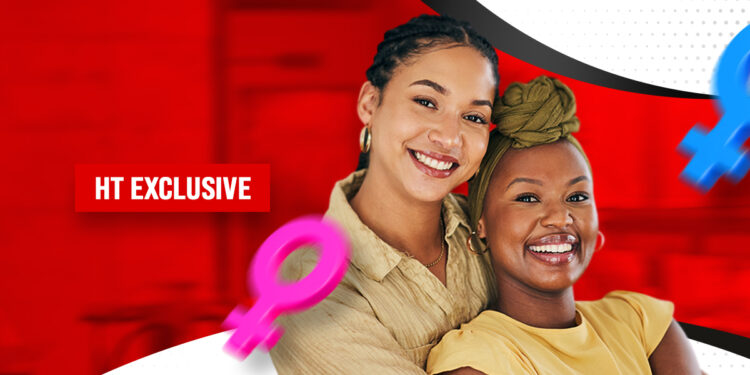As the world celebrates International Women’s Day (IWD) the focus on breaking barriers of inequality faced by women in Africa has never been more pertinent, from education to decision-making, the call for empowering women to accelerate progress towards a more inclusive and prosperous future echoes louder than ever before, Ere-ebi Agedah Imisi writes.
International Women’s Day IWD serves as a powerful reminder of the ongoing struggle for gender equality and the imperative to invest in women to accelerate progress. In a world where disparities persist and women continue to face multifaceted challenges, IWD stands as a beacon of hope, calling for collective action to empower women and promote their full participation in all spheres of life.
The theme “Invest in Women, Accelerate Progress” underscores the critical importance of recognizing women’s potential as agents of change and catalysts for social and economic development. As we commemorate IWD, it is essential to reflect on the strides made, acknowledge the barriers that still exist, and reaffirm our commitment to building a more inclusive and equitable society where every woman has the opportunity to thrive and contribute meaningfully.
In a continent where gender disparities persist in various aspects of life, from education to decision-making, the call for empowering women to accelerate progress towards a more inclusive and prosperous future echoes louder than ever before.
It is essential to acknowledge that for many women in Africa, there is little to celebrate during this IWD, amidst the harsh realities of gender-based violence, economic marginalization, and limited access to healthcare persist, underscoring the urgency of addressing systemic inequalities.
In the realm of decision-making, women in Africa are vastly underrepresented, both in political and corporate spheres. Despite constituting a significant portion of the population, women continue to face barriers that hinder their participation in leadership roles and decision-making processes. Efforts to promote women’s inclusion in decision-making must be prioritized, as diverse perspectives are crucial for effective governance and sustainable development.
Our correspondent spoke with Mrs Ebitimi Toruka a female gender advocate for gender equality and women’s empowerment, who noted that investing in women is not only a moral imperative but also a strategic necessity for advancing societies and achieving sustainable development.
According to Mrs. Ebitimi Toruka, the advancement of women is intertwined with the progress of entire communities and nations. When women are empowered with access to education, economic opportunities, and decision-making roles, the benefits extend far beyond individual households. Women become catalysts for positive change, driving economic growth, fostering social cohesion, and promoting inclusive development.
She emphasizes that investing in women is not merely about charity or benevolence; it is a sound investment with high returns.
‘‘Research consistently demonstrates that societies that prioritize gender equality and invest in women’s education and empowerment are more prosperous and resilient. By harnessing the talents, skills, and creativity of women, countries can unlock new sources of innovation, productivity, and competitiveness in the global economy’’ she said.
Furthermore, Mrs. Ebitimi noted that there is need for targeted interventions to address specific challenges faced by marginalized groups of women, including those living in rural areas, women with disabilities, and ethnic minorities.
‘‘By ensuring that all women have equal access to opportunities and resources, societies can unleash the full potential of their human capital and achieve inclusive growth’’ she said.
Filling the gender gap in healthcare
Similarly, in the realm of healthcare, the gender gap looms like an insurmountable chasm, as International development organization Sightsavers passionately advocated for all health services to be inclusive and accessible to women and girls, including those with disabilities.
According to Sightsavers in a statement by its communication advocate, Joy Tarbo, women and girls encounter disparities that heighten their vulnerability to diseases, disabilities, gender-based violence, and even mortality.
However, celebrating some remarkable women who champion the health cause of women, Sightsavers maintained that for many women, addressing their health concerns ranks at the bottom of a long list of challenges and priorities.
Among these trailblazers is Omosefe Osinoiki, a dedicated research associate at Sightsavers Nigeria, spearheading the investigation into female genital schistosomiasis, FGS in the country. An estimated 56 million women endure this chronically underdiagnosed disease, which inflicts severe pain and infertility, with Nigeria bearing the largest burden.
FGS significantly impairs women’s reproductive health. Yet, the current dearth of information about its prevalence and consequences in Nigeria impedes effective prevention and treatment strategies. Nonetheless, Omosefe Osinoiki leads the charge in providing women with the essential information they need to access care.
Osinoiki says, “Investing in women’s health is a strategic move towards society’s wellbeing. It creates a ripple effect that elevates their community. When women are empowered, in their education as well as their health, they are able to sustainably take care of their families, both physically and otherwise.”
Also, Dr. Joy Shu’aibu, Country Director of Sightsavers, noted that, “As we mark International Women’s Day, we stand committed to addressing the urgent health needs of women and girls worldwide. Through our work in Nigeria, we are dedicated to combating female genital schistosomiasis, ensuring that no woman or girl suffers in silence. Together, we can break barriers, empower women, and build a healthier, more equitable future for all.”
From the European Union
In the same vein, the European Commission and the High Representative/Vice-President issued a joint statement underscoring the crucial need to invest in women for accelerating progress. Highlighting the disparity in women’s representation in politics, the statement noted that the current percentage of women in political roles falls short of reflecting the diversity of societies. On average, female representation in single or lower houses of parliament stands at 33% in EU Member States and 26.5% globally.
With 2024 being a pivotal year for elections worldwide, with over 4 billion individuals participating, including more than 400 million EU citizens set to vote in the European Parliament elections in June, the statement acknowledged the relentless efforts of courageous women activist who fought for the right to vote when it was the privilege of men, and to every woman in all their diversity who plays a part in shaping a fairer and more equal society.
Despite progress, women in many parts of the world face obstacles in participating in public life, with some entirely excluded from decision-making and public spaces. Women, especially politicians, journalists, and activists, encounter discrimination and heightened risks of online and offline violence.
According to the EU, In line with the global theme of “Inspire Inclusion” for the 2024 International Women’s Day and the United Nations’ theme “Invest in women: Accelerate progress,” the European Commission has taken proactive steps as Vice-President Jourová recently inaugurated the Commission’s “Women in public life” high-level event in Brussels, focusing on challenges encountered by women in politics, journalism, and civil society.
READ ALSO: Nigeria: NCDMB Lauds President Tinubu Oil Sector’s Executive Orders For Reinforcing NOGICD Act, SLA
Despite efforts, women remain underrepresented in politics. In 2023, only six EU Member States achieved a gender balance of over 40% in their parliamentarians, while seven had fewer than 25% female MPs. Globally, women hold only 26.7% of parliamentary seats, 35.5% of local government seats, and a mere 28.2% of management positions in the workplace.
Also, the European Commission has championed legislative initiatives and policy actions to advance gender equality, including the recent political agreement on combating violence against women and domestic violence. Additionally, the Commission has prioritized gender balance in corporate boards and launched campaigns to challenge gender stereotypes.
The Commission’s commitment to gender equality extends beyond its borders, with initiatives aimed at empowering women globally. These efforts encompass funding projects, addressing gender-based violence, promoting women’s political participation, and strengthening the voice and leadership of young women in policy-making.
However, as the world commemorates International Women’s Day, the European Union reaffirmed its dedication to advancing gender equality and fostering inclusive progress, adding that its unwavering commitment underscores its vision of a world where women’s rights are respected, and their contributions are celebrated and valued.




































